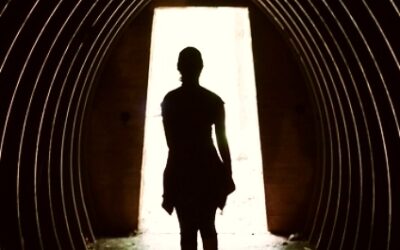
Do you suffer from a Judge and Jury mind?
Have you ever watched a film about, or ending in, a trial?
In it a defendant is in the dock charged with some serious crime or terrible deed. As it’s a major offence they are tried before a jury. Ordinary members of society picked to be a fair representation of the public.
The trial sets out the various accusations and evidence against the accused, while the defence will attempt to disprove and cast doubt on these facts.
The judge – a very learned and respected individual under the law – presides over the proceedings. Their role is to ensure a fair, just trial is granted and that all correct legal elements were presented as the trial was conducted.
Trial done and all evidence and counter arguments delivered, it becomes the turn of the jury to deliberate whether the defendant was guilty or not guilty. This ensures that fairness and equality were afforded to the implicated prisoner.
Judge and jury independent from each other to assure fair play.
But, just imagine what we happen if the judge decided he was also the jury? That they are the decider and potential executioner in one?
Well, you don’t need a court room for this scenario.
Many of us have a judge and jury mind that works exactly like this!
Guilty as believed.

Some would say that life itself is a trial.
A test we have to continually get through. One that feels like a prison to some. No matter what they have done, or tried to do, in certain situations, very little has gone their way. From love to money, career to plain old good luck, all of the happy outcomes have gone to others.
This is the first flaw in thinking.
It perceives life is being personal. That it is singling them out to experience the worst, while plenty more get given the best. The end result? They have become a victim and born to lose. Once that sets in, the judge and jury mindset won’t be too far behind.
A mindset that is convinced that whatever they want to achieve, they are not good enough, talented enough, or lucky enough. From dating to daring business ideas, they sit in judgement over themselves and pass sentence. Guilty as charged on all negative things that make them never win at anything.
Except the real crime here is to be guilty in belief.
Guilty of deciding both as the judge and jury that a bad future or outcome lies ahead for any wish or goal. So kill it now. Lock it up before it has any chance of escape. Don’t let it out. It can never ever be in public again. It is wrong and must be kept away and protected from the world at large.
The judge and jury mind has spoken. Or thought.
You are free to go.

If you experience this train of thought, worry not. It does not have to be a life sentence.
You can break the chains of this mindset.
This is the second flaw in thinking.
If you can think it one way, you can rethink it back the other. You have to use just one voice. Your own that wants to do the thing you wish – get the date, open the shop, get promoted etc. Use that ONLY.
Be alert for the second voice in your head that starts whispering negatives and how it will all be a disaster. The one that shows you all the awful images to match. You know the ones!
Quell that, tell it to shut up, go away, and encourage your goal focused mind. Keep reminding yourself this is what you want, that it’s right for you, that it’s going to be OK….and all those types of promising statements.
And go even further and break those shackles of inaction – DO the idea/take the first step and throw caution to the wind. Make the call, register a business name, approach your boss about stepping up. Go after it. Release yourself by not ever judging yourself in advance again.
The world will never ever judge you the same as you do in your head. It’s actually waiting for who you are. It always has been. So, go wow it.
Become a free mental soul. Big yourself up, not consign yourself to defeat. Think BIG. Be bigger. Go do. Go be.
Clear your made up bad name and clear your blameful head. There is a big future for you.
And the jury ISN’T out for that. You are free to GO, GO, GO!!
Photo attributions – Free to use under Pixabay Content License by Mehrshadezaei and Sunriseforever and Angela_Yuroiko_Smith.
SuperMind Saturday – Life After Death.
Five thoughts, ideas, insights, or quotes to power up your mind to think differently and creatively about life and who we are. Put all previous thinking away and open up a brand new world of the Supermind. YOUR SuperMind. This week – Life After Death. The only thing...
The Mental Miracle of Reframing.
Your mind can look at things many different ways. But, it generally doesn't. Years and years of repeated patterns of thinking have hard wired your thinking. This means that what you believe, you tend to continue to believe, Which transfers to what you see, what you...
Can Your Mind See The Future?
Would you love to see the future? To be able to tell what will happen for you and even the world? If you said yes, then you are in good company. Millions of people around the world would love to be able to see ahead in time. In fact, some would go even further. A...
The No.1 Killer Mindset Affecting Millions of Us.
We all have a mindset. And we are all different. One person's mindset isn't fully the same as another's. As a result we think, believe, see, and act differently. But, there is ONE mindset that millions of us the world over do share. One that is present every single...
SuperMind Saturday – Debt.
Five thoughts, ideas, insights, or quotes to power up your mind to think differently and creatively about life and who we are. Put all previous thinking away and open up a brand new world of the Supermind. YOUR SuperMind. This week – Debt. It's a money world today....
The Secret Ingredient That Totally Changes the Mind.
There are not many secrets left these days. With the advent of social media, 24 hour rolling news, and a permanent non-stop 24/7 culture, it's hard to keep anything hidden away. But, there is one secret that very few are party to. It's a secret that's long been there,...
How Micro Positive Thinking Helps Improve Stuck Minds.
Do you want to have more positive thinking but you can't seem to make it work? You won't be on your own because most minds get stuck when moving from poor thoughts to better ones. The current neural pathways that fire constant lesser thoughts to the awareness have...
Mindsight – how we really see the world.
How do you think you look at the world? A basic and simple question to most people, one a five year old would be able to answer. 'With your eyes', they would reply. But, it's not through the lens of your eyes that you have tended see the world and life, but through...
SuperMind Saturday – Celebrities.
Five thoughts, ideas, insights, or quotes to power up your mind to think differently and creatively about life and who we are. Put all previous thinking away and open up a brand new world of the Supermind. YOUR SuperMind. This week – Celebrities. You can't move these...
The Unknown Success Tool Called Reverse Thinking.
Let's say you have a big goal or aspiration. A mega life achievement you wish to come true. Or simply to solve a long standing problem. Typically, you have in your mind a final outcome - fame, money, awards, freedom to live your life, less struggle and more success,...
The ONLY Change You Need For a Better Life in 2026 and Beyond.
It's time for a New Year. As 2025 comes to a close and 2026 is on the horizon, thoughts turn to the future. To OUR own future and how it could be happier, more content, become more meaningful, and one we will love to get up each morning to enjoy. For the majority this...
Why Christmas is Magic for the Mind.
It's the most wonderful time of the year. So goes the classic line from the song sung by Andy Williams. It's a special time of loving and giving, caring and sharing, family and friends, food and fun. Work stops and we get to rest and enjoy quality time with each...












